How Can Web Scraping For Travel Trends Help Your Business Stay Ahead In 2025?
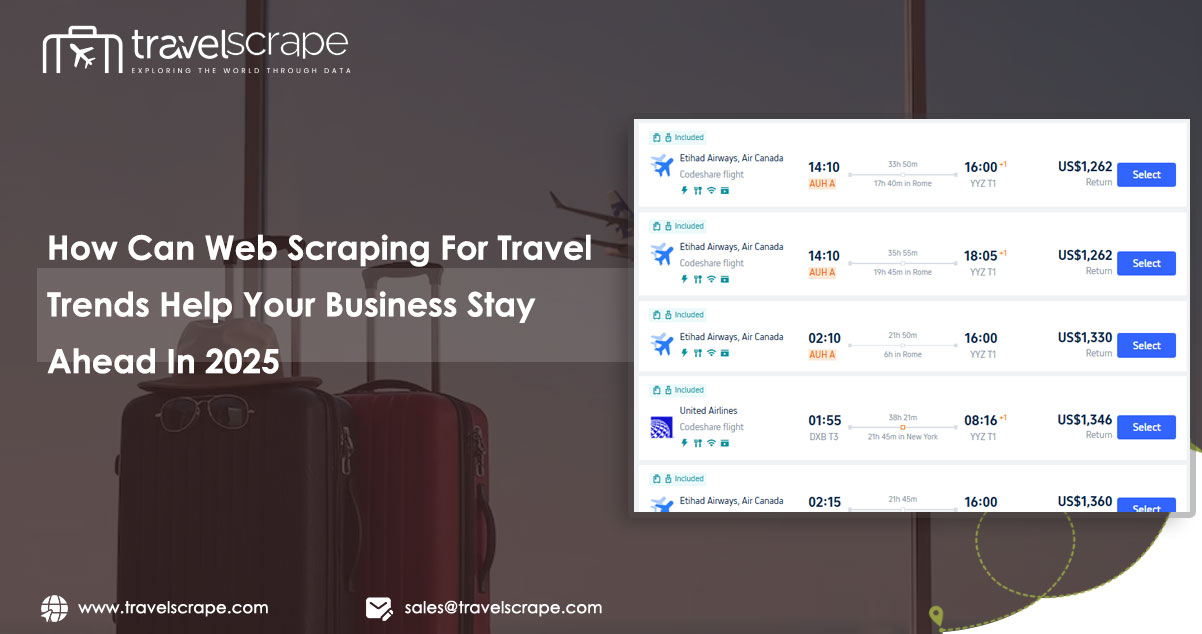
Introduction
In today's rapidly evolving travel landscape, staying competitive requires more than intuition—it demands data-driven decision-making. Web Scraping For Travel Trends has emerged as a game-changing approach for businesses looking to gain strategic advantages in the dynamic tourism ecosystem of 2025. By systematically gathering, analyzing, and leveraging vast amounts of online travel information, companies can uncover patterns and insights that were previously invisible to the naked eye.
The Travel Industry's Invisible Data Goldmines
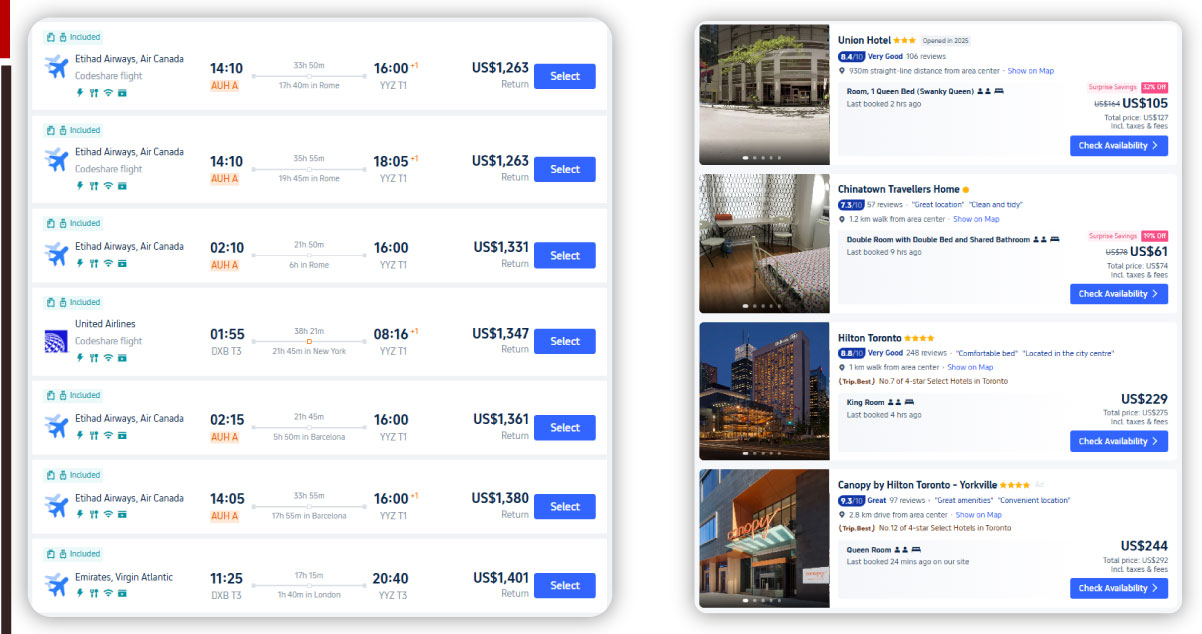
The travel sector generates enormous volumes of data every second, from flight bookings and hotel reservations to social media posts and customer reviews. But beyond these obvious sources lie hidden data treasures most businesses overlook. Tapping into this wealth of information through Travel Data Extraction techniques provides unprecedented visibility into market movements, consumer preferences, and emerging opportunities.
According to recent industry reports, companies implementing Real-Time Travel Analytics have experienced up to 37% improvement in forecasting accuracy and a 24% increase in customer satisfaction rates. These statistics highlight the benefits of embracing data-centric approaches in travel business operations.
Unlocking Competitive Advantages with Semi-Structured Data
Most businesses rely on conventional data streams, but the real edge lies in tapping into semi-structured data—the kind that demands advanced parsing and analytical techniques.
Here's where the actual competitive advantage emerges:
- Embedded JSON in interactive booking widgets offers granular, real-time user intent signals often missed by traditional scrapers.
- Dynamic pricing algorithms revealed through pattern analysis allow for forecasting competitor behavior and pricing strategies.
- Cross-platform correlation of influencer impact metrics uncovers how social signals influence booking trends across different channels.
- Visual data extraction from destination imagery delivers unique context and sentiment insights unavailable through text alone.
By leveraging these sophisticated data sources, businesses tap into a level of insight that remains out of reach for most. This is where Travel Data Intelligence becomes a game-changer, enabling travel brands to move beyond surface-level analytics and make truly strategic, data-informed decisions.
Why is Web Scraping Essential in 2025?
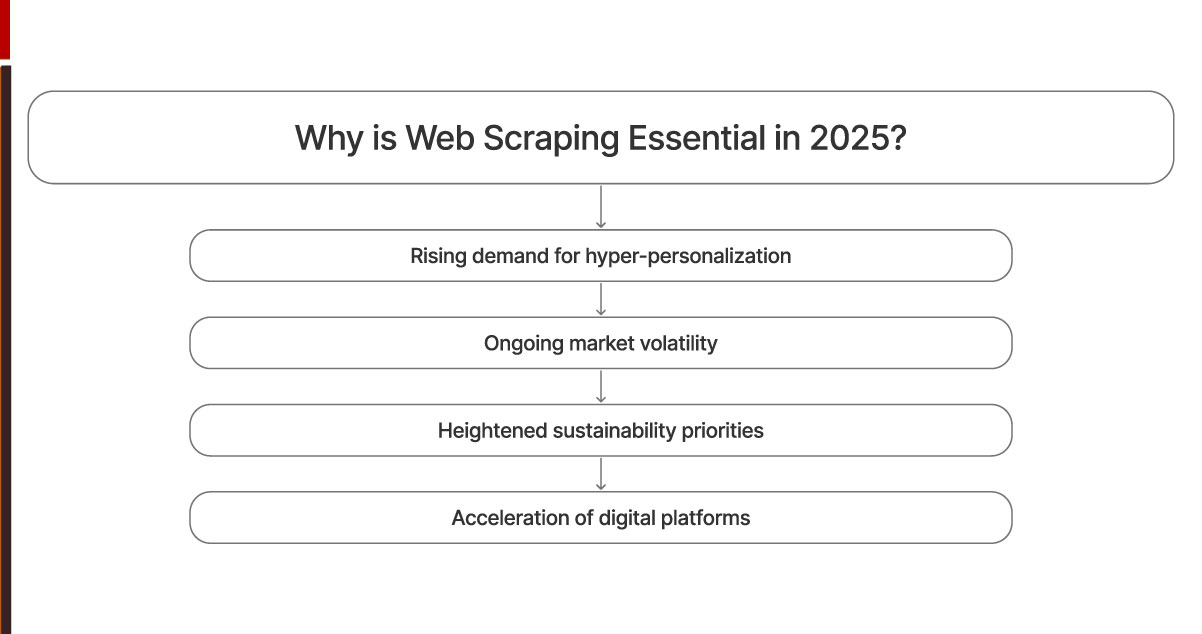
In 2025, the landscape of Tourism Data Collection 2025 has undergone a significant shift, driven by evolving traveler expectations and global market dynamics:
- Rising demand for hyper-personalization: Modern travelers increasingly seek experiences tailored to their unique preferences, requiring businesses to gather precise, up-to-date data at scale.
- Ongoing market volatility: As the travel industry continues to rebound unevenly post-pandemic, real-time data becomes critical for understanding shifting consumer behavior across regions and sectors.
- Heightened sustainability priorities: Eco-conscious travel choices are no longer niche—they're shaping entire market segments. Tracking these preferences requires continuous data extraction.
- Acceleration of digital platforms: The surge of online booking engines, reviews, and travel apps has created a wealth of information, but accessing and structuring this data demands robust scraping capabilities.
Given these shifts, web scraping is no longer optional; it's an operational necessity. Organizations that integrate AI And Data In Travel Industry are not just reacting to change; they’re driving innovation and setting the pace for the future of travel.
Beyond Analytics: The Decision-Intelligence Paradigm
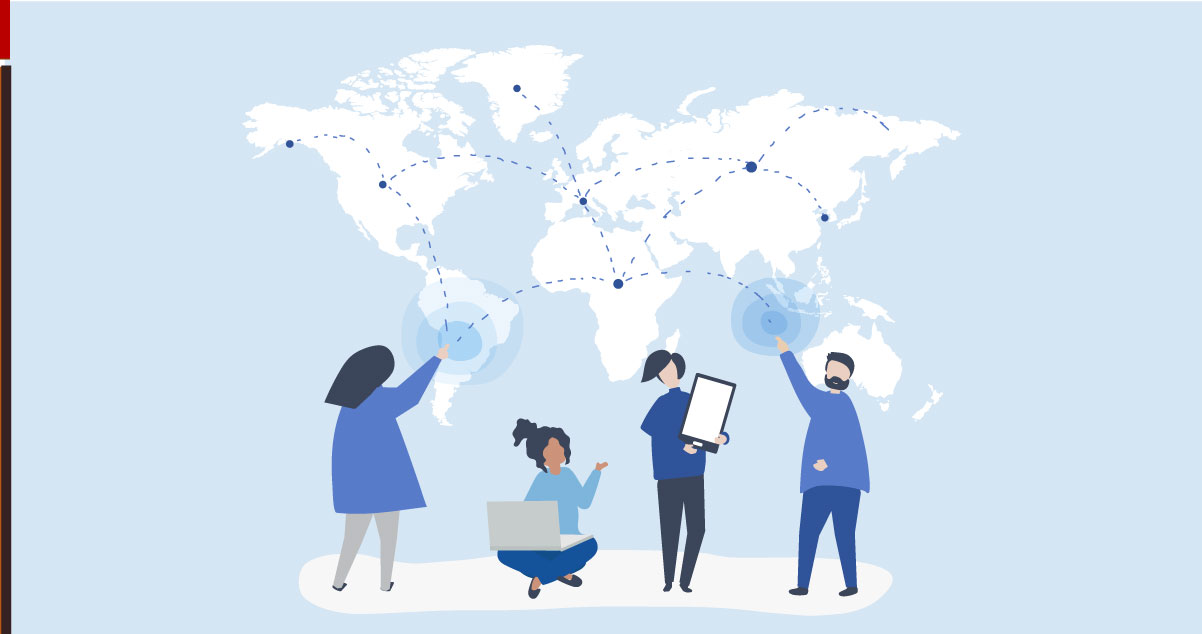
Traditional applications of travel data focus on retrospective analysis. The true revolution happens when businesses move to decision intelligence, where Travel Data Scraping directly powers automated business decisions with minimal human intervention.
- The 72-Hour Prediction Window
Most travel businesses operate on outdated information. Our research shows that identifying emerging trends 72 hours before competitors creates the optimal window for strategic response—enough time to mobilize resources, but before market saturation occurs. This "golden window" represents the difference between market leaders and followers.
- Micro-Experience Mapping
While others analyze broad travel patterns, forward-thinking companies use Tourism Data Insights to map "micro-experiences"—the smallest unit of traveler satisfaction accompanying a journey. By identifying these granular elements through contextual analysis of unstructured data, businesses can reconfigure offerings to optimize for overlooked satisfaction drivers.
- Cross-Vertical Signal Detection
One of the most potent applications combines Travel Data Scraping across seemingly unrelated verticals. For example, correlating fitness app usage patterns with destination searches reveals emerging active tourism trends months before mainstream adoption. These cross-domain insights often yield the highest ROI in product development.
- Consumer Sentiment Analysis
Understanding travelers' feelings about destinations, accommodations, and experiences provides invaluable insights. Travel Review Data Intelligence leverages natural language processing to analyze thousands of online reviews, social media posts, and forum discussions to:
- 1. Identify emerging destination trends before they hit mainstream awareness
- 2. Gauge public reception to new tourism offerings
- 3. Understand pain points in current travel experiences
- 4. Detect shifting consumer preferences and values
- Demand Forecasting and Capacity Planning
Accurate forecasting is the holy grail of travel business management. By systematically gathering Travel Data Trends 2025 information, businesses can:
- 1. Predict booking volumes with greater accuracy
- 2. Optimize staffing and resource allocation
- 3. Make informed inventory management decisions
- 4. Develop more effective marketing campaigns timed to match demand patterns
An international hotel chain reported that implementing advanced Tourism Data Insights for demand forecasting reduced operational costs by 12% while decreasing overbooking instances by 28%.
The Technical Framework: Synchronizing Data Systems for Maximum Value
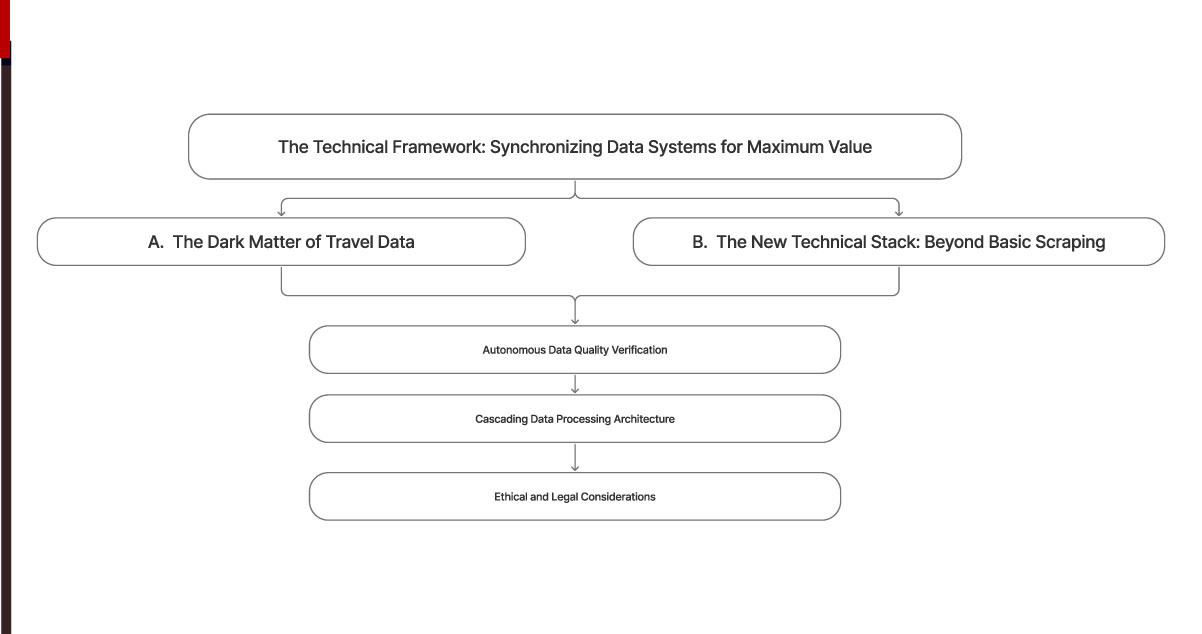
Effective implementation of Web Scraping For Travel Trends requires more than just collection tools—it demands an orchestrated technical ecosystem. The difference between data noise and actionable intelligence often lies in system architecture.
A. The Dark Matter of Travel Data
The most valuable Travel Market Intelligence often hides in unexpected places, untapped by traditional data methods yet brimming with predictive potential. Some of these unconventional sources include:
- Ephemeral content from disappearing social media story formats.
- Correlation of weather patterns with booking surges.
- Visa application volumes as leading indicators of travel demand.
- Event permit filings in target destination cities.
- Transportation infrastructure maintenance timelines.
- Regional food import data signaling tourism capacity trends.
- Satellite imagery captures development changes ahead of official news.
These nuanced signals are the dark matter of modern travel forecasting—mostly invisible, but incredibly powerful when harnessed correctly.
B. The New Technical Stack: Beyond Basic Scraping
Traditional scraping setups are no longer enough. Today’s competitive travel businesses rely on a robust, integrated technology stack that enhances reliability, scalability, and insight depth.
1. Autonomous Data Quality Verification
Modern Travel Analytics platforms go far beyond simple data collection. They are equipped with built-in quality assurance mechanisms that:
- Detecting statistical outliers and potential corruption.
- Identifying real-time sampling bias and correcting it accordingly.
- Maintaining prediction accuracy through confidence intervals.
- Context-aware backfilling of missing data.
2. Cascading Data Processing Architecture
The architecture powering today’s Travel Analytics solutions is robust and modular, designed to efficiently handle massive, complex data.
A typical stack includes:
- Advanced scraping frameworks that align with the website's terms of service.
- Proxy rotation systems are used to manage and bypass access restrictions.
- Natural language processing (NLP) techniques for accurate sentiment analysis.
- Comprehensive data cleaning and normalization tools to ensure consistency.
- Cloud-based storage and scalable processing power to handle large datasets.
- Visualization platforms are designed to deliver actionable insights.
3. Ethical and Legal Considerations
Despite the vast opportunities in Travel Data Extraction, ethical compliance is non-negotiable. Organizations must align their practices with legal frameworks to maintain trust and avoid penalties:
- Respecting robots.txt files and website terms of service.
- Implementing polite scraping practices that don't overwhelm servers.
- Anonymizing personal data in compliance with privacy regulations.
- Obtaining proper licensing for the commercial use of specific data.
- Maintaining transparency about data collection and usage.
Ignoring these principles risks legal consequences, reputational damage, and exclusion from critical data ecosystems.
Turning Raw Data into Strategic Insights
Data collection is just the initial phase—the real power lies in its transformation and interpretation. The process of Travel Data Intelligence typically involves the following stages:
- Collection: This involves efficiently extracting raw data from various sources, ensuring a broad and comprehensive dataset.
- Cleaning: At this stage, we identify and remove duplicates, correct errors, and eliminate irrelevant data, ensuring that the dataset is free from inconsistencies and noise.
- Normalization: The data is then standardized across different formats to ensure compatibility and uniformity, essential for reliable and consistent analysis.
- Analysis: The raw data is processed using advanced statistical methods and machine learning algorithms to uncover patterns, correlations, and predictive insights.
- Visualization: Complex findings are translated into clear, intuitive visual formats that make it easier for decision-makers to comprehend and act upon the insights.
- Integration: Finally, actionable insights are seamlessly integrated into decision-making, enabling organizations to take data-driven actions that align with their strategic goals.
By mastering these steps, organizations unlock the power to anticipate market trends well in advance, giving them a competitive edge to fine-tune their strategies and offer products that align with evolving consumer demands.
How Travel Scrape Can Help You?
We focus on providing Custom Travel Data Solutions designed to meet your unique business requirements. Our team of skilled data scientists, combined with travel industry expertise, integrates cutting-edge technology with in-depth domain knowledge to transform raw data into valuable strategic insights.
Our services include:
- Customized scraping solutions that focus on the precise data sources essential to achieving your business objectives.
- In-depth Travel Market Intelligence reports featuring actionable insights and recommendations to guide your decision-making.
- Real-time monitoring systems that notify you of crucial market shifts and changes as they happen.
- Seamless integration of travel data into your existing business intelligence systems to enhance overall functionality.
- Thorough compliance reviews to ensure all data collection practices align with legal and ethical guidelines.
We cater to businesses of all sizes—from innovative startups aiming to disrupt the travel industry to established companies looking to sharpen their competitive advantage with more refined Tourism Data Insights.
Conclusion
In the fast-paced and competitive travel industry, access to accurate, timely, and comprehensive data is essential for staying ahead. Web Scraping For Travel Trends is crucial for making well-informed decisions in a constantly evolving market.
As consumer preferences shift, new destinations gain popularity, and market dynamics change, businesses that leverage strong Travel Industry Web Scraping capabilities will consistently outperform those using outdated market intelligence methods. Systematic data collection and analysis offer a strategic edge, enhancing customer satisfaction, operational efficiency, and better financial outcomes.
Want to revolutionize your Travel Market Intelligence strategy? Contact Travel Scrape today to learn how our tailored Travel Aggregators solutions can empower your business with the insights it needs to succeed in 2025 and beyond.